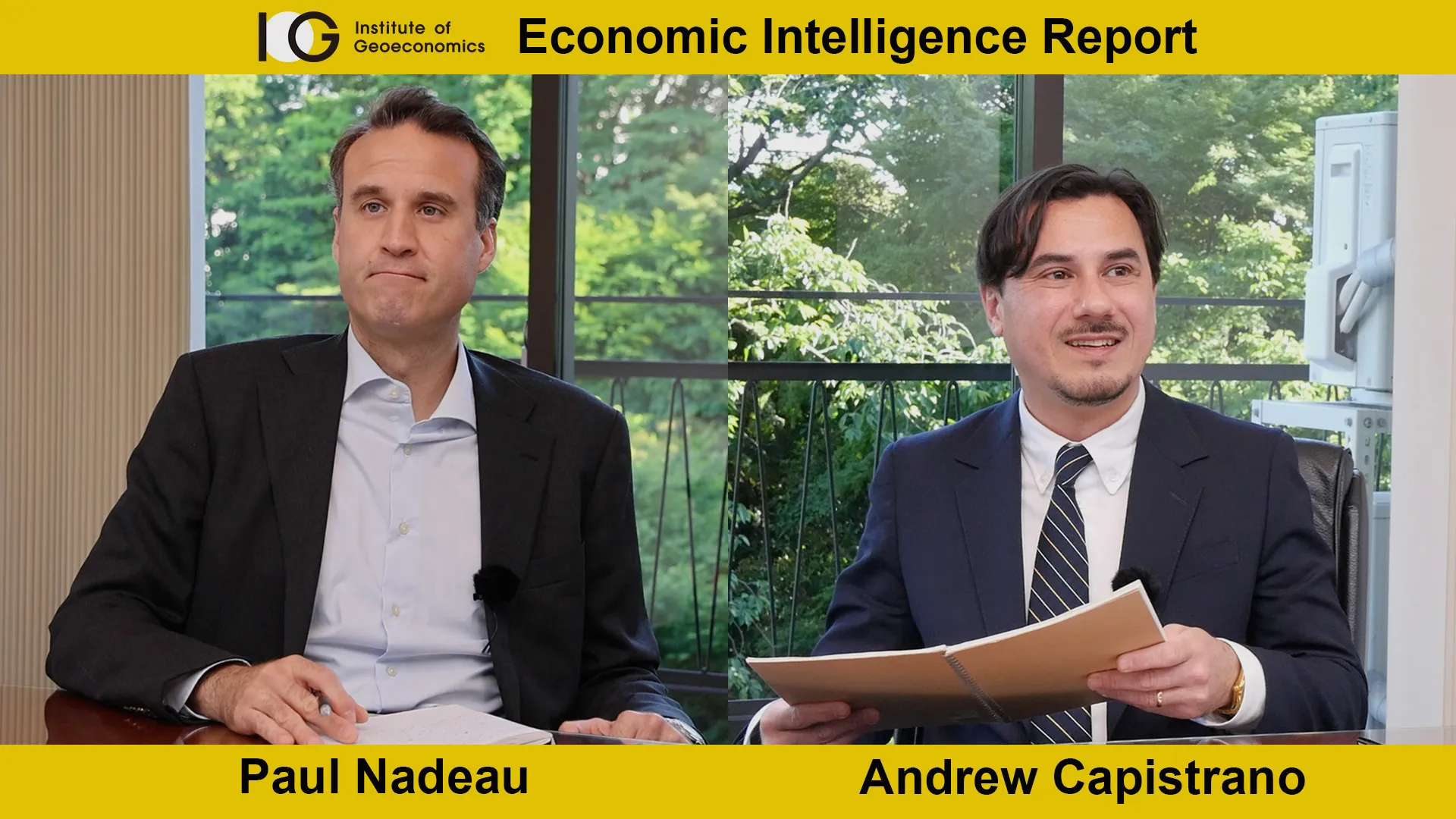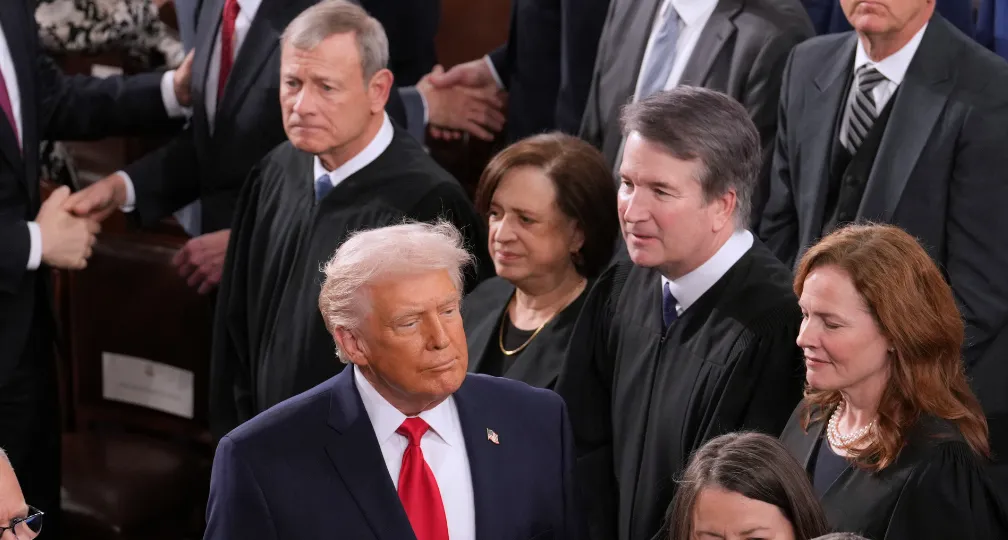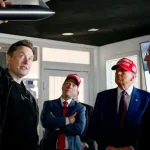IOG Economic Intelligence Report (Vol. 2 No. 14)

The latest regulatory developments on economic security & geoeconomics
More Subsidies for Germany: Germany is planning to spend $20 billion in subsidies to increasing domestic semiconductor manufacturing. The money will be distributed to German and international firms by 2027 and will be drawn from the Climate and Transformation Fund, an extra-budgetary fund originally established to fund decarbonization of the German economy. The funding is in addition to $10 billion that the German government is providing for Intel to build a new plant and is also in the process of approving $7 billion to companies like TSMC and Infineon. Other countries making similar investments include the United States ($50 billion), Japan ($14 billion), and India ($10 billion).
Congress Wants Investigation into CATL: Mike Gallagher (R-WI), chair the House Select Committee on the Chinese Communist Party, and Jason Smith (R-MO), the chair of the Ways and Means Committee, have announced an investigation into Ford Motor Company’s licensing agreement with CATL (Contemporary Amperex Technology Co., Limited), a Chinese battery company. In February 2023, Ford announced agreement with CATL on Ford’s new $3.5 billion battery plant in Michigan that would use knowledge and services provided by CATL. A letter sent on July 21 to Ford CEO Jim Farley by Reps. Gallagher and Smith allege CATL’s involvement in forced labor and that a “significant” portion of the jobs created will be given to Chinese citizens. The letter also requested that Ford share documents and communications, including a copy of the licensing agreement and any related documents, as well as communications between Ford and the Biden administration on the agreement.
A New China Strategy for Germany: The German government released its new China strategy, on July 13 which emphasizes a need for Germany to de-risk its relationship with China to account for risks to Germany’s security in its relationship with China in addition to economic opportunities and points to a “systemic rivalry” between Germany and China. The document builds on Germany’s national security strategy which was released last month and with the language regarding China from the G7 summit in May. The report emphasizes Germany’s desire to work with China on economic exchange and on issues like climate change, but states that it aims for a relationship with China that “becomes fairer, more sustainable and more reciprocal”, recognizing that “China has changed and so [Germany’s] China policy must change too”.
Streamlining Federal Reporting for R&D: U.S. President Biden signed an executive order on July 28 in Maine that would remove red tape and streamline the reporting process for federal research-and-development funding with the goal of encouraging domestic manufacturing of new innovations. The EO also calls on federal agencies to develop a coordinated interagency approach, particularly on a single platform to handle reporting requirements.
Nissan Invests in Renault EVs: Nissan announced it would invest $663 million into Renault’s electric vehicle unit, called Ampere. The investment will give Nissan a seat on the company’s board and is part of a broader restructuring that the companies announced in February 2023.
World Trade Statistical Review for 2023: The World Trade Organization released its World Trade Statistical Review on August 1, providing data on trends in international trade over 2022. The opening message from WTO Director-General Ngozi Okonjo-Iweala helped summarize the findings, stating that trade growth continues to be positive but has been slowed by debt distress, monetary tightening, inflation, and the invasion of Ukraine.
DNI Finds China Helping Russia Circumvent Sanctions: The Office of the Director of National Intelligence released a report on China’s support to Russia on Jul 27, finding that China has provided Russia with help in evading sanctions. The unclassified report finds that Chinese state-owned defense companies have been providing sanctioned Russian defense companies with dual-use technology while China’s semiconductor exports, including U.S.-manufactured semiconductors, increased dramatically since 2021. The report was mandated by Congress under the FY2023 Intelligence Authorization Act.
Progress Report on WTO Dispute Settlement: Marco Molina, Guatemala’s deputy permanent representative to the WTO who has been asked to organize an informal process to restore the WTO’s dispute settlement system, provided an update on the progress. He said that “80 percent” of issues have been resolved, with near-agreement on a further 10 percent, while there were still significant gaps on the remaining 10 percent, without elaborating on the specific issues in question. Talks will resume after August in the hope of reaching an agreement that can be announced the WTO’s 13th Ministerial Conference in February 2024 in the United Arab Emirates.
Analysis: Understanding the Right Challenge from China
As geopolitical competition between China and the United States settles in as an enduring feature of global politics, at least for the short- to medium-term, it’s worth stepping back to reconsider what exactly these powers are competing for and what’s driving the mutual suspicion. And while there’s a lot of fear mongering for its own sake, especially in Congress, there are also legitimate concerns about China’s behavior: its military posture is often threatening by design, it detains foreign citizens for reasons that are often opaque, provides support to Russia by circumventing sanctions, has been willing to try to use its economic leverage to inflict political damage, as in the case of Australia, Lithuania, South Korea, and others.
The question is at which point China’s behavior rises to the level of a systemic challenge, something that would reshape the entire way that the world interacts and states conduct their affairs and secure their needs. Since the end of World War II, the system has been defined by the U.S.-led liberal international order that emphasized open markets, free flow of commerce, peaceful resolution of disputes, and international institutions to create rules and guide relations between states. On this count, China’s rise hasn’t been especially revisionist in terms of seeking to replace the existing system with a new one in its own image. In fact, some of its more notable attempts at global status-seeking were eminently liberal, like the Asian Infrastructure Investment Bank based upon the multilateral development banks that have been cornerstones of economic development in the postwar order. Without being too benign about the coercive threat from China, its ambitions are still far short of historical structural revisionists like Nazi Germany or the Soviet Union.
Instead, China’s structural challenge is posed by its sheer size and nonmarket economy. The scale of China’s market that makes it so appealing to the private sector also makes uniquely challenging. China can produce so much of such a vast array of products that it’s capable of flooding the markets through scale alone and depressing prices and local production through supply shocks. It consumes so many commodities that any disruption to that demand would cause serious damage to commodity-exporting economies, many of which are developing countries. These issues aren’t always deliberately nefarious – even though they give China a powerful tool to exercise economic coercion, not unlike that which the United States enjoys over certain economic and financial activity – but that scale and its state capitalist system presents a challenge to the international system that the postwar order wasn’t designed to accommodate.
This is the context in which a certain degree of managed de-risking makes sense, by reducing the risk of overdependence and overexposure to China’s economy. This has resulted in efforts by firms to relocate their supply chains, adopt “China +1” strategies that develop a just-in-case supply chain in the event there’s a disruption in China, and more. These are steps that will be led mostly by the private sector and are mostly part of an organic process of learning and adapting as risks evolve and balancing the opportunity of the world’s largest market against the risks of overreliance on an often fickle and unpredictable government. The private sector can certainly help shape the international system but won’t on its own be able to reshape the entire order to accommodate China (the caveat is that there’s a real chance that the private sector might ultimately be the decisive player here, but that’s a discussion for another day).
For now, resolving a systemic challenge is still within the purview of national governments, in this case the U.S. government since it remains the global hegemon. Its response to China’s rise so far has been a series of discrete actions on specific issues that don’t necessarily add up to a systemic strategy and they certainly don’t offer a response to the structural challenge presented by China’s size. Tariffs on steel and aluminum might shield U.S. producers from imports but it won’t solve for a global supply glut (and the basis for implementing them is fraudulent anyway). Export controls on advanced technologies might slow China’s technological development but won’t solve for China’s production of legacy chips or the potential that China might eventually catch up anyway.
The response doesn’t need to be resignation or containment. Mark Wu of Harvard Law School suggests updating the WTO system to adapting its rules or expanding its jurisdiction to account for China’s size and governance model. And while China’s economy is huge, it’s not an overpowering behemoth – the combined economies of the United States, European Union, Japan, and other proverbial like-minded partners produce sufficient scale that coordination on rulemaking and more could compel China to play along to a degree. That’s not another appeal to the (strawman) economic-engagement-will-make-China-more-like-us argument, but a recognition of the fact that the economies of the liberal order carry plenty of economic weight themselves and can leverage that toward the goal of supporting and adapting the international order if they choose. Unfortunately, the Biden administration has been turning its back on the very tools that would help do that and ultimately making their job much harder.
At the very least, there needs to be a recognition that China’s scale is a bigger systemic threat to the global order than anything else, even the future of Taiwan. China’s economy is already big and it’s going to get bigger: If China’s population, three times larger than that of the United States is going to enjoy the same GDP per capita as the United States, then China’s economy would need to become three times larger than that of the United States. Containment isn’t only impractical, efforts toward that end can contribute toward a deepening security dilemma that might ultimately pose greater risks than the ones they’re seeking to solve. The United States desperately needs to get this right. It’s not clear that it will.
Disclaimer: The views expressed in this IOG Economic Intelligence Report do not necessarily reflect those of the API, the Institute of Geoeconomics (IOG) or any other organizations to which the author belongs.
API/IOG English Newsletter
Edited by Paul Nadeau, the newsletter will monthly keep up to date on geoeconomic agenda, IOG Intelligencce report, geoeconomics briefings, IOG geoeconomic insights, new publications, events, research activities, media coverage, and more.


Visiting Research Fellow
Paul Nadeau is an adjunct assistant professor at Temple University's Japan campus, co-founder & editor of Tokyo Review, and an adjunct fellow with the Scholl Chair in International Business at the Center for Strategic and International Studies (CSIS). He was previously a private secretary with the Japanese Diet and as a member of the foreign affairs and trade staff of Senator Olympia Snowe. He holds a B.A. from the George Washington University, an M.A. in law and diplomacy from the Fletcher School at Tufts University, and a PhD from the University of Tokyo's Graduate School of Public Policy. His research focuses on the intersection of domestic and international politics, with specific focuses on political partisanship and international trade policy. His commentary has appeared on BBC News, New York Times, Nikkei Asian Review, Japan Times, and more.
View Profile-
 The Supreme Court Strikes Down the IEEPA Tariffs: What Happened and What Comes Next?2026.02.27
The Supreme Court Strikes Down the IEEPA Tariffs: What Happened and What Comes Next?2026.02.27 -
 Fed-Treasury Coordination as Economic Security Policy2026.02.13
Fed-Treasury Coordination as Economic Security Policy2026.02.13 -
 What Takaichi’s Snap Election Landslide Means for Japan’s Defense and Fiscal Policy2026.02.13
What Takaichi’s Snap Election Landslide Means for Japan’s Defense and Fiscal Policy2026.02.13 -
 Challenges for Japan During the U.S.-China ‘Truce’2026.02.12
Challenges for Japan During the U.S.-China ‘Truce’2026.02.12 -
 India and EU Sign Mother of All Deals2026.02.09
India and EU Sign Mother of All Deals2026.02.09
 Orbán in the Public Eye: Anti-Ukraine Argument for Delegitimising Brussels2026.02.04
Orbán in the Public Eye: Anti-Ukraine Argument for Delegitimising Brussels2026.02.04 Fed-Treasury Coordination as Economic Security Policy2026.02.13
Fed-Treasury Coordination as Economic Security Policy2026.02.13 India and EU Sign Mother of All Deals2026.02.09
India and EU Sign Mother of All Deals2026.02.09 When Is a Tariff Threat Not a Tariff Threat?2026.01.29
When Is a Tariff Threat Not a Tariff Threat?2026.01.29 Navigating Uncertainty in U.S. Space Policy: Decoding Elon Musk’s Influence2025.04.09
Navigating Uncertainty in U.S. Space Policy: Decoding Elon Musk’s Influence2025.04.09













